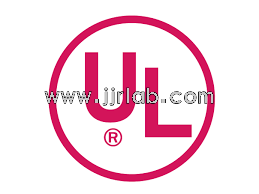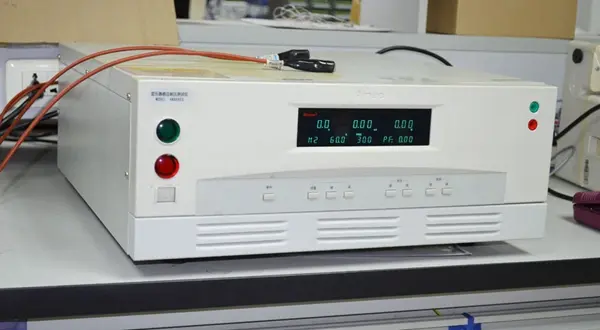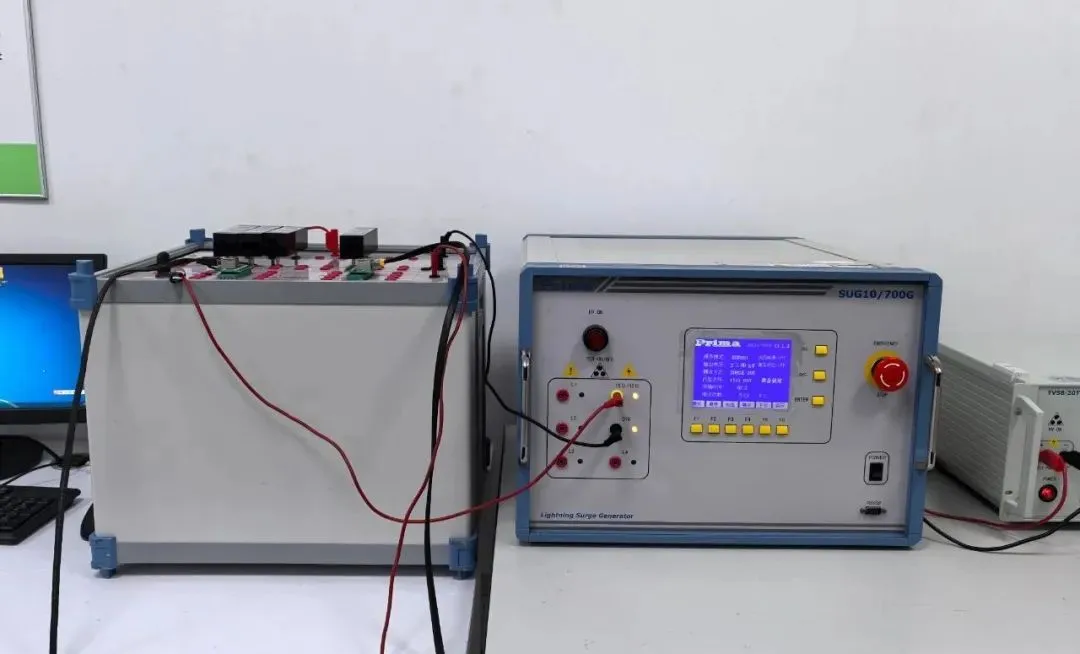
Which Products Require UL Certification?
In today's environment, where product safety and quality are paramount, UL certification has become a crucial "passport" for many companies to bring their products to market. But what exactly is UL certification? What significance does it hold for businesses and their products? Let’s delve into the details.

What is UL Certification?
UL stands for Underwriters Laboratories Inc., a leading private organization in the U.S. that specializes in safety testing and certification. UL's primary focus is on product safety certification and performance verification, with the ultimate goal of ensuring that goods in the marketplace meet established safety standards. For American consumers, the UL mark symbolizes safety and reliability. It is also a trusted source of certification for manufacturers.
While UL certification is voluntary in the U.S., it primarily involves testing and certifying product safety features. Note that UL certification does not cover electromagnetic compatibility (EMC) aspects. The UL mark is globally recognized as a standard for safety, with many countries and regions incorporating UL certification as a vital requirement for market access.
UL certification marks fall into three categories: Listed, Classified, and Recognized Component marks. These marks are applied to different types of products and services and cannot be used interchangeably, as doing so would be consideRED fraudulent. All UL-certified products must bear one of these marks.
- UL Listed Mark: This is the most common UL mark, awarded to products that meet UL standards during certification.
- Classified Mark: Found on products evaluated for specific properties, these marks indicate classification based on the product’s nature and potential hazards.
- Recognized Component Mark (RU Mark): This mark is typically used for components rather than consumer products. These components may be part of a larger product or system.
Which Products Require UL Certification?
1. Electronic and Electrical Products
- Consumer Appliances: Refrigerators, washing machines, MICrowaves, etc.
- Audio-Visual Equipment: TVs, sound systems, etc.
- Computers and Peripherals: PCs, printers, etc.
- Information Technology Devices: Routers, switches, and other network equipment.
- Wires and Cables: Essential for electrical connections.
2. Mechanical Products
- Industrial Machinery: Equipment used in production lines.
- Household Machinery: Small appliances like sewing machines and juicers.
- Automotive Components: Engines, brake systems, etc.
3. Electromechanical Products
- Power Tools: Electric drills, saws, etc.
- Electric Vehicles
- Mechatronic Devices
4. Building and Fire Safety Products
- Fire doors, extinguishers, smoke detectors, and other products that enhance building safety and fire protection.
5. Other Products
- Electronic Components: Resistors, power supplies, diodes, etc.
- Plastics: As raw materials for various products, plastics must meet safety and environmental standards under UL certification.
Importance of the UL Certification Mark for Businesses
1. Market Preference for Safety: The U.S. market highly prioritizes product safety. Buyers and consumers prefer products with UL certification.
2. Strong Reputation: With over 100 years of history, UL’s image of safety is deeply ingrained among consumers and government entities. Even if products are sold through intermediaries, many demand UL certification for smoother sales.
3. Enhanced Consumer Confidence: UL certification fosters trust in the safety and reliability of products.
4. Government Recognition: Over 40,000 federal, state, and local government jurisdictions across the U.S. acknowledge the UL mark.
Steps to Obtain a UL Certification Mark
1. Submit an Application
Start the certification process by submitting detailed product information, such as name, model, specifications, and intended use, via the official UL website (https://www.ulsolutions.com.cn/) or by contacting their support team.
2. Application Review
UL will thoroughly review the application to ensure the product meets relevant standards and regulations. Additional information or documents may be requested, requiring the applicant’s cooperation.
3. Sample Preparation and Testing
After approval, applicants must provide the required number of product samples to a UL-designated laboratory for comprehensive testing to verify safety and performance.
4. Factory Inspection (for First-Time Applicants)
First-time applicants must undergo a factory inspection by UL to confirm that the manufacturing facility has robust production and quality management systems that comply with UL standards.
5. Issuance of Certification and Mark Usage
Upon passing the tests and inspections, UL will issue a certification, allowing the company to use the UL mark on its products to demonstrate compliance and safety.
Maintaining UL Certification
UL-certified businesses are required to undergo quarterly factory inspections to ensure continued compliance with UL standards and regulations. This ensures that products consistently meet the required safety standards, reinforcing trust among consumers and partners alike.
Email:hello@jjrlab.com
Write your message here and send it to us
 Global Certification Guide for Lithium Batteries
Global Certification Guide for Lithium Batteries
 Compliance of Amazon 18650 Lithium Battery Product
Compliance of Amazon 18650 Lithium Battery Product
 What is CE Certification and EU Authorized Represe
What is CE Certification and EU Authorized Represe
 What Are the Lithium Battery Safety Tests?
What Are the Lithium Battery Safety Tests?
 What is the EN 61326-2-3 Standard?
What is the EN 61326-2-3 Standard?
 Why Do Smart Sockets Need IEC 60884 Certification?
Why Do Smart Sockets Need IEC 60884 Certification?
 Why Retest the Device if the 5G Module Already Has
Why Retest the Device if the 5G Module Already Has
 Overview of IEC 62087 Test Standard
Overview of IEC 62087 Test Standard
Leave us a message
24-hour online customer service at any time to respond, so that you worry!




